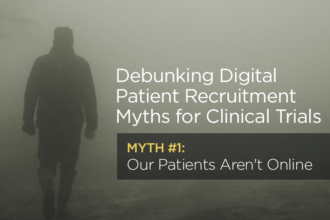The pharmaceutical industry has been experiencing some fundamental changes–outstanding efficacy and cost-effectiveness is more essential than ever for a drug to gain market access; the traditional one-size-fits-all blockbuster strategy has been increasingly challenged by personalized medicine, and the use of medicine is declining. These changes suggest the pharmaceutical industry needs to transform from “drug maker” to “health management provider” to sustain growth moving forward.
The pharmaceutical industry has been experiencing some fundamental changes–outstanding efficacy and cost-effectiveness is more essential than ever for a drug to gain market access; the traditional one-size-fits-all blockbuster strategy has been increasingly challenged by personalized medicine, and the use of medicine is declining. These changes suggest the pharmaceutical industry needs to transform from “drug maker” to “health management provider” to sustain growth moving forward.
The shift of the pharmaceutical industry is taking place under a larger backdrop, that is the pursuit of a more effective, more efficient, safer and cheaper health care delivery system, which requires connectivity and synergy among different sectors in health care.

Photo credit: http://www.infosecurity-magazine.com
Connectivity across different health care stakeholders is made available largely due to digital technologies. Digital health tools such as EHR, remote monitoring system, telemedicine and social media have demonstrated potential to drive better outcome and reduce cost. As the adoption of these tools increases significantly, new digital health technologies are burgeoning, attracting both talents and investment. A report published last week by Mercom Capital, a consultancy found that the digital health industry raised $623 million in the second quarter, a new record for the industry. The company estimated the total investment of 2013 in digital health will exceed $2 billion.
Technologies coming out from the venture capital (VC) will have large implications for the health care industry as key players like big pharma and hospitals start to integrate tools made by winning start-ups. These companies may define the future landscape of digital health.
So what are the leading digital health companies are doing? what key products do they have? Who are their funding partners?
To answer these questions, I conducted a quick research by looking at the top five companies listed in the Mercom report that raised the most VC in the second quarter.
Although these companies focus on different areas, some trends can be detected from their products:
First, many of the key products rely on cloud computing. This suggests moving forward, compatibility across health care system will be essential to increase efficiency and companies who enter the space first and set up standard for the industry will have huge advantage to become leaders. Cloud computing on the flip side also poses new challenges for patient privacy, patient-physician communication and even physician trainings.
Second, almost all companies have integrated mobile technology into their products. This isn’t anything new but it emphasizes the trend that personal devices such as smart phones and tablets will become more hybrid, blurring the boundaries between consumer electronic products and medical devices. This movement will continue to create controversies as existing regulations may not be able to cover some of the areas.
Third, social media components have been largely incorporated into the products, suggesting user-generated data will play a significant role in digital health. One thing to note is that the social media components in the products are often not associated with mainstream social networks such as Facebook and Twitter but built upon encrypted and closed network only for eligible users. Additionally, physician-focused social media components are being leveraged across products, presenting new opportunities from both clinical and marketing perspectives.
The company’s key technology is a digital health feedback system that uses an ingestible sensor attached to a pill to provide real-time data to physicians about when a medication is taken or skipped by a patients. Additionally, the sensor can also measure heart rate and physician activity. The technology has potential to improve patient adherence. The technology has a few cool features:
- The sensor is made of natural ingredients and activated by stomach fluids.
- The system consists of the sensor, a patch and a mobile app. The patch captures data from the sensor and transmits information to the app on a mobile device, where users can access the data and share them with healthcare providers and peers via a secure and controlled network.
Proteus has been approved in the U.S. and EU for its wearable and ingestible sensor devices and the technology has been tested in heart failure and hypertension. Its funding partners include big names such as Kaiser, Medtronic, Novartis, Otsuka and Oracle.
.
lifeIMAGE’s major offering is medical imaging exchange services, which enables patients, physicians and medical institutions to share imaging online via a cloud-based system available both on desktop and mobile devices. The solution addresses the traditional barriers in medical imaging sharing—discs are often not readable at a different facility, causing repeated testing; specialty and referring physicians cannot interpret imaging by collaborating with other care providers real-time, resulting in delays in diagnosis. Additionally, the service can significantly help physicians and patients to remotely access resources otherwise unavailable to improve efficiency. As many other digital health technologies, lifeIMAGE also integrated social elements—users can connect with each other and share images on a closed network.
.
Blue Health Intelligence ($35.5 million)
The company is a spin-off of the insurance company Blue Cross and Blue Shield Association and provides details on how healthcare is used by customers through analyzing data of millions of insurance claims within Blue Cross and Blue Shield. The claim-driven data analysis service studies areas where costs may be reduced and quality may improve, determines the best treatments and improves healthcare quality, safety, delivery and costs. The service’s key target customers are health care management providers, government agencies and the life science industry.
The health care market research company offers a variety of data and insights services across major international markets. Through its global network, WorldOne has both off-line and online HCP survey and data analytics capacity. The company’s portfolio includes WorldOne Interactive, a company that develops online engagement platforms to gather marketing insights from health care stakeholders. Its key products include MedLIVE, a market research platform focused on HCPs; DocTANGO, a proprietary social health game platform for physicians; MedNow, an HCP-focused content delivery system. In 2012, WorldOne acquired Sermo, an online community and social network exclusive to physicians.
.
Watermark Medical ($32.2 million)
Watermark Medical makes a cloud-based home sleep testing system for obstructive sleep apnea facilitating delivery of care by primary care physicians with integrated professional review and interpretation by boarded sleep physicians. The company’s potential market is huge as the New York Times reports about 28 million Americans have some forms of sleep apnea and many of them are undiagnosed.







